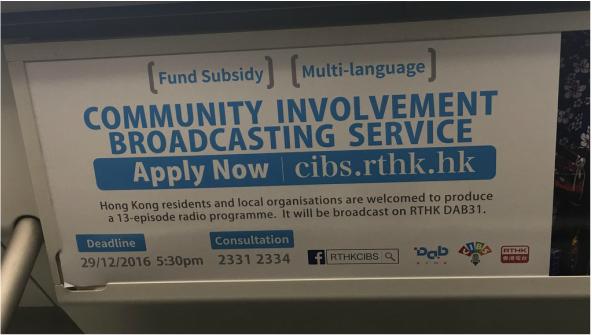|
The word 'welcome' in English is an extremely useful one, but it has number of different forms and usages that can easily confuse Hong Kong speakers. You can see this confusion in the following sign: What exactly does it mean, that sentence that reads "Hong Kong residents and local organisations are welcomed to produce a 13-episode radio programme"? Common sense tells us that this is an invitation for Hong Kong people and organisations to try their hand at producing a radio series. But is that what 'are welcomed' means? To answer this question, we need to do a quick survey of some of the most common ways that 'welcome' is used in English.
1) Welcome -- a verb used to describe the act of meeting and greeting people
Notice that this kind of welcoming is something we do to people. That is, we welcome guests, visitors, delegates, friends etc. -- people. 1A) Welcomed -- past participle used in passive constructions of type (1)
This passive construction is often accompanied by a 'by' clause, as in the examples given, to indicate who is doing the welcoming. As in (1), this is used to refer to meeting and greeting people, at a specific place and time. 2) Welcome -- a verb used to indicate that you encourage or support something
These uses mean something like 'we will be pleased to receive suggestions/submissions…'. Notice that this kind of welcome is something connected not usually with people, but with things (suggestions, submissions, initiatives, opportunities etc). It does not refer to a specific place or time. 2A) Welcomed -- past participle used in passive constructions of type (2)
In these kinds of sentences, is/was welcomed carries the sense of 'encouraged' or 'supported'. As with type (2), this passive use of 'welcome' is usually restricted to things, not people (here 'comments' and 'the peace initiative'). 3) To be welcome -- followed by 'to + verb' A final way we can use 'welcome' is to grant permission or to reassure someone that they can certainly do something. For this, we use the expression 'is/are welcome' followed by an infinitive verb. Note that this is not a passive form:
With these key usages in mind, let's turn back to our original sentence and see if we can identify which category it falls into:
You should be able to see that this sentence uses (2A), a passive construction meaning 'to encourage or support something'. But as we saw, this kind of structure does not generally have people as its subject -- yet here, the subject is people. Furthermore, (2A) type constructions are not followed by 'to + verb'. The writer has here conflated type (2A) and type (3) sentences, and the result is a sentence that no English speaker is ever likely to produce. How to handle this problem? The best and simplest option, in this case, is just to abandon the word 'welcome', because none of its meanings fit the context of this sentence. We can redraft much more effectively simply by changing the verb:
This short blog post has not exhausted all the different ways in which 'welcome' is used in English, but I want to finish by noticing just one more -- the common expression "you're welcome". It's a very handy politeness expression that we should always have on hand when someone thanks us for something:
0 Comments
Your comment will be posted after it is approved.
Leave a Reply. |
About this blogThis blog arises from keeping an eye on English in Hong Kong. I often use signs, notices and advertisements that I see as starting points to write about English issues that commonly challenge Hong Kong writers. Archives
October 2017
Categories
All
|


 RSS Feed
RSS Feed